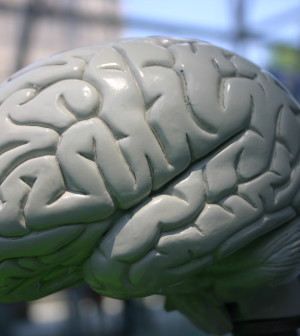- 8 Ways to Increase Dopamine Naturally
- 7 Best Breads for Maintaining Stable Blood Sugar
- Gelatin vs. Collagen: Which is Best for Skin, Nails, and Joints?
- The Long-Term Effects of Daily Turmeric Supplements on Liver Health
- Could Your Grocery Store Meat Be Causing Recurring UTIs?
- Are You Making This Expensive Thermostat Error This Winter?
- Recognizing the Signs of Hypothyroidism
- 10 Strategies to Overcome Insomnia
- Could Artificial Sweeteners Be Aging the Brain Faster?
- Techniques for Soothing Your Nervous System
Could Brain Thickness Point to Stronger Religious Belief?


THURSDAY, Dec. 26, 2013 (HealthDay News) — Higher levels of self-professed spiritual belief appear to be reflected in increased thickness of a key brain area, a new study finds.
Researchers at Columbia University in New York City found that the outer layer of the brain, known as the cortex, is thicker in some areas among people who place a lot of significance on religion.
The study involved 103 adults between the ages of 18 and 54 who were the children and grandchildren of both depressed study participants and those who were not depressed.
A team led by Lisa Miller analyzed how often the participants went to church and the level of importance they placed on religion. This assessment was made twice over the course of five years. Using MRI technology, the cortical thickness of the participants’ brains was also measured once.
The study, published Dec. 25 in JAMA Psychiatry, revealed the significance of religion or spirituality was linked with thicker cortices in certain parts of the brain. The effect was stronger among those at high genetic risk for depression than those at lower risk. This was particularly evident in a part of the brain where a thinner cortex may be linked with a familial risk for developing depression, the researchers noted.
Although the importance of religion was tied with thicker cortices in some parts of the brain, the study showed the frequency of church attendance did not have the same association. This was true regardless of the participants’ genetic risk for depression.
The findings only show an association between cortical thickness and religious belief “and therefore do not prove a causal association,” the study authors stressed.
More information
The U.S. National Institute of Neurological Disorders and Stroke provides more information on the human brain.
Source: HealthDay
Copyright © 2026 HealthDay. All rights reserved.










